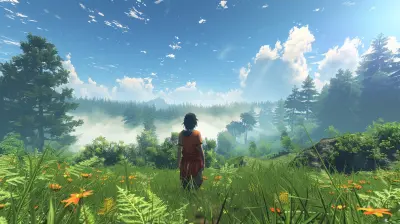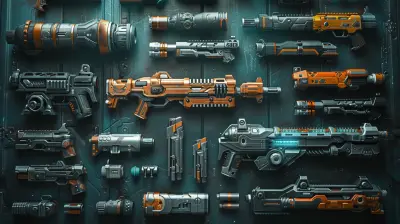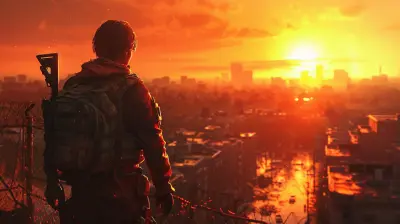How Weapon Mods Impact In-Game Economy and Balance
20 July 2025
When you dive headfirst into the thrilling worlds of video games, there's always some aspect that changes the way you approach your gameplay. One of the more fascinating ones? Weapon modifications—or weapon mods for short. They're flashy, functional, and often the holy grail for hardcore players. But they don’t just make things pew-pew better; weapon mods have an undeniable impact on the in-game economy and balance. Sounds dramatic? Oh, it is. Let’s unpack it all together.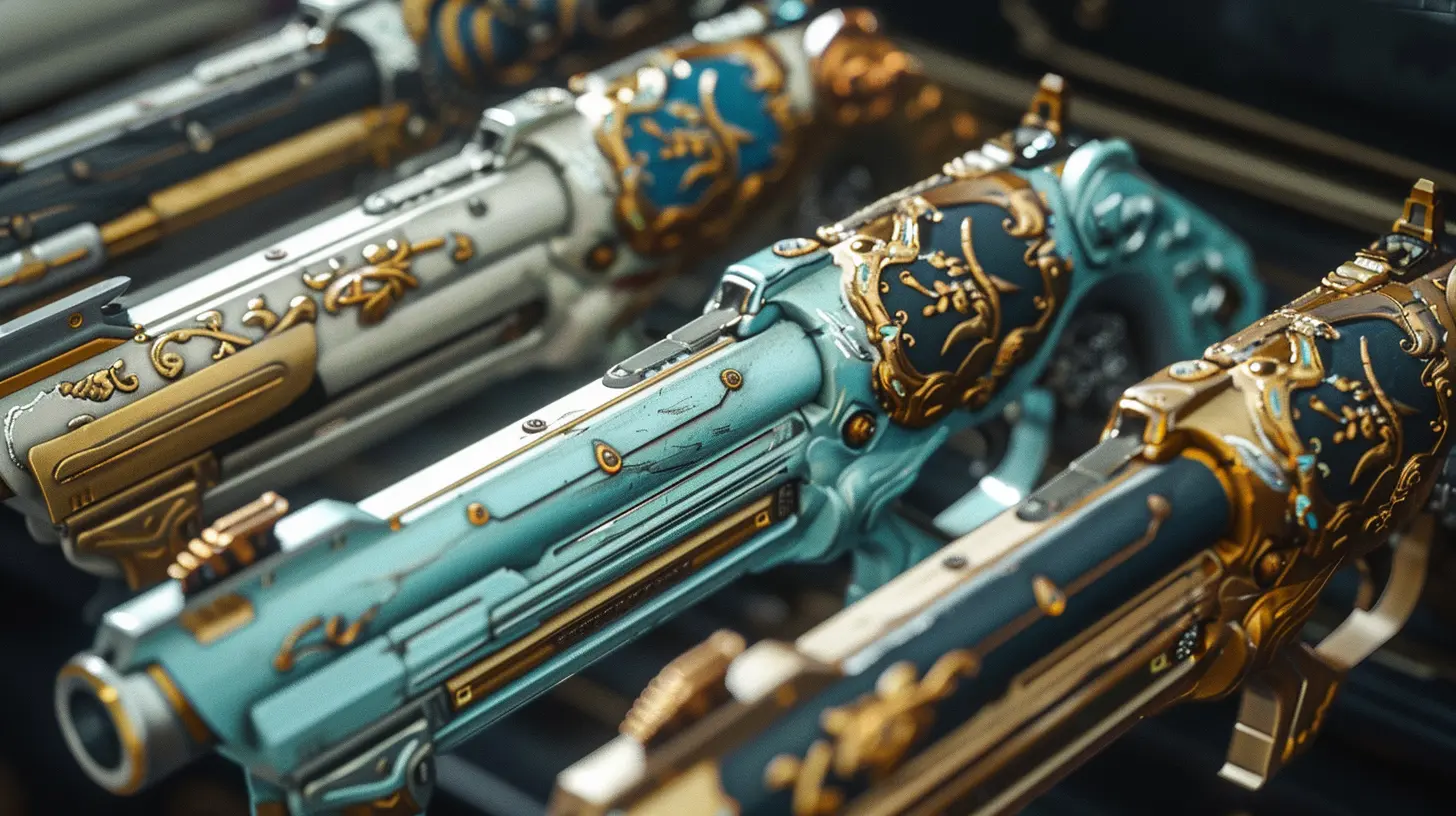
What Are Weapon Mods, Anyway?
If you're unfamiliar, weapon mods are upgrades or attachments you can add to your weapons to enhance their performance. Think scopes, silencers, extended magazines, skins, or even elemental upgrades like fire or poison damage. They’re a way to take your basic gear and crank it up a notch.For example, in shooters like Call of Duty or Apex Legends, weapon mods can give you that extra oomph—whether that’s better accuracy or faster reloads. Meanwhile, in RPGs like The Witcher or Fallout, they might let you deal specialized damage or offer a unique perk. At a glance, these seem pretty harmless, but when you zoom out, they’re like a small pebble thrown into a lake. The ripples stretch far and wide.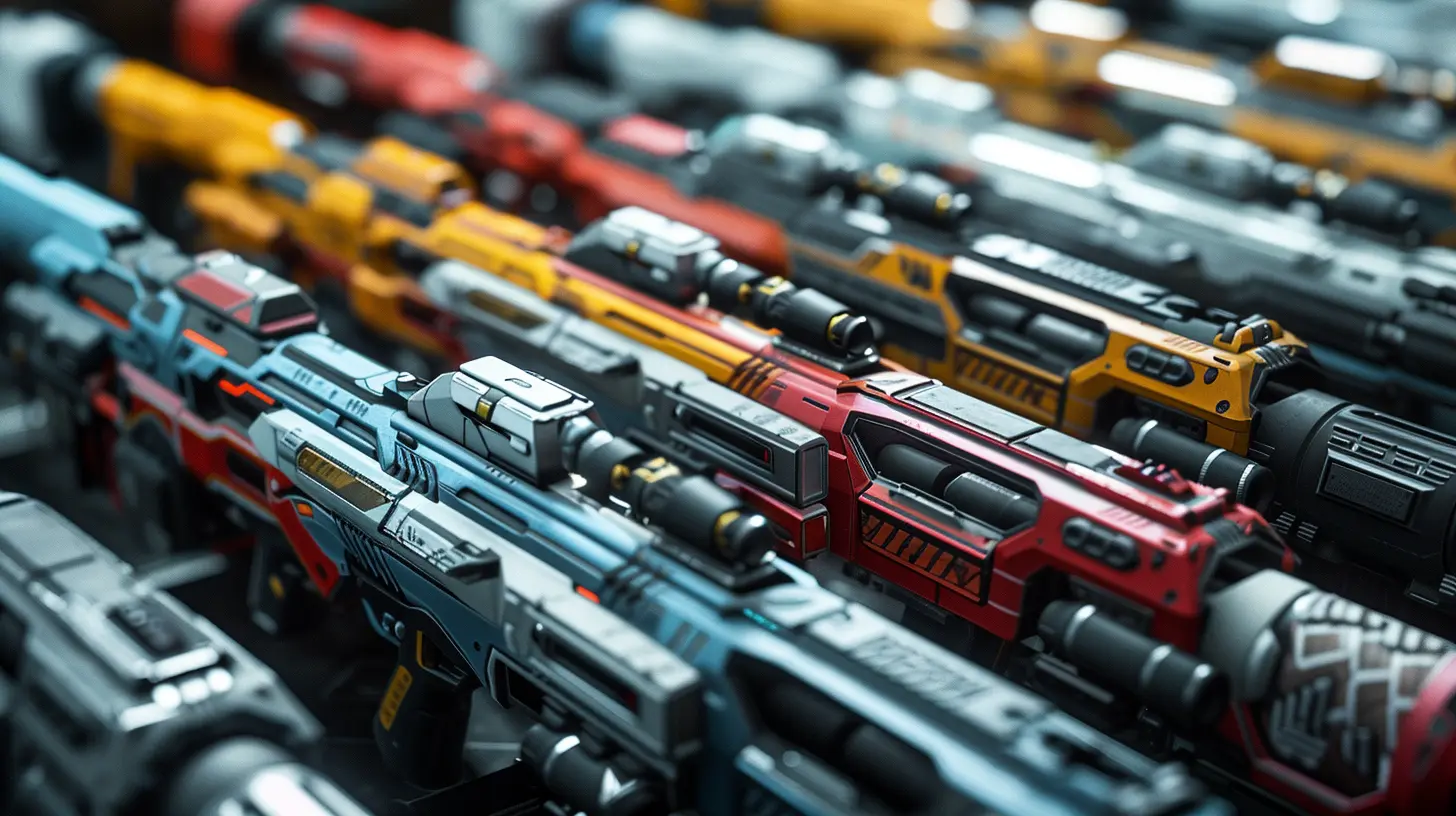
Weapon Mods and the In-Game Economy
Ah, the in-game economy—the lifeblood of any game where players trade, craft, or grind for resources. Weapon mods play a surprisingly huge role here. Let’s break it down.1. The Price Tag on Power
Weapon mods often come with a significant price in games. They’re either locked behind hefty in-game currency walls, rare drops, or hours of grinding materials. This creates a clear distinction between the haves and the have-nots. If you’re a player who doesn’t have the time to grind, you’re often left feeling like you’re struggling to keep up with those rocking fully modded weapons.This difference becomes particularly pronounced in games with player-driven economies, like Escape from Tarkov or Warframe. A highly sought-after mod can skyrocket in value, draining entire wallets of in-game currency. Some mods are so rare that they become virtual currency themselves, traded among players like a hot commodity.
This dynamic often leads to a snowball effect: The best mods make you stronger, which makes farming resources even faster, which in turn lets you rake in better mods. Meanwhile, newer or less dedicated players can end up stuck in an endless grind loop trying to catch up.
2. Microtransactions and Pay-to-Win Models
We have to address the elephant in the room: microtransactions. When weapon mods get tied to real-world money, things get tricky. Plenty of games these days, especially free-to-play ones, monetize mods by selling them in loot boxes or premium packs.Here, weapon mods can upset the balance between paying players and free players. If someone can outright purchase mods that drastically improve their performance, it can leave non-paying players feeling irrelevant. It’s like bringing a water gun to a flamethrower fight—yeah, it’s unfair.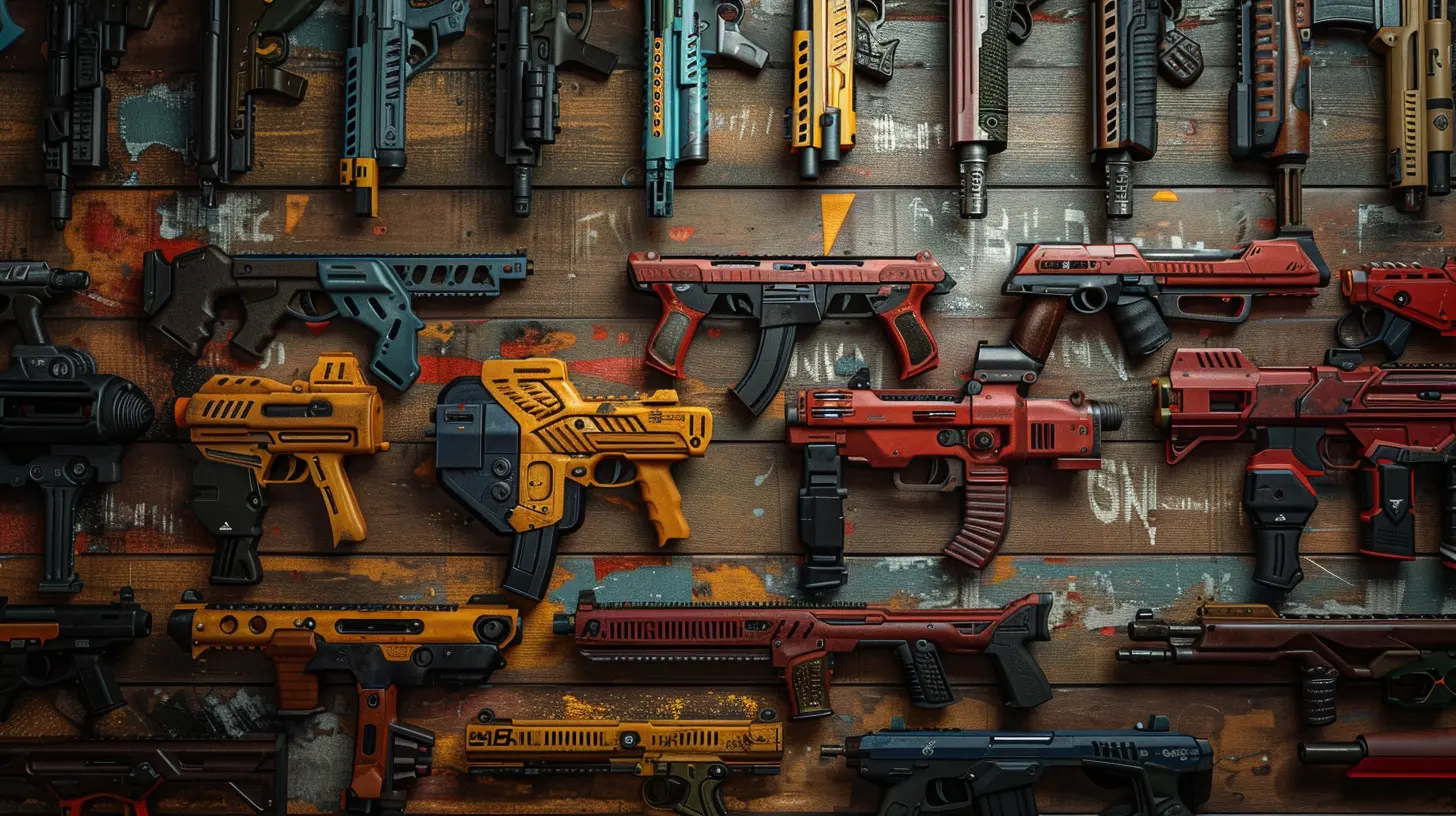
The Balance Tug-of-War
Game developers often walk a tightrope with weapon mods. On one hand, they want mods to feel meaningful and impactful. What’s the point of upgrading if it doesn’t noticeably improve gameplay? But on the other hand, too much power can wreak havoc on balance. Let’s explore this.1. Overpowered Mods and Player Frustration
One of the biggest risks of weapon mods is creating overpowered (OP) setups. Ever faced an opponent in a multiplayer match where their modded weapon completely nukes you before you even have time to react? Frustrating, right?Take Destiny 2 as an example. There have been times when mods have turned specific weapons into literal gods among mortals. It’s not just frustrating for players facing the OP weapons, but it can also create a stale meta where everyone gravitates towards the same build. Suddenly, variety goes out the window, and the game starts to feel repetitive.
2. Balancing Acts Are Hard
Let’s not forget that developers are human too (despite what social media might insist). Balancing mods can be insanely tough. Boost a weapon’s fire rate with a mod? Now it’s shredding through bosses way too quickly. Nerf it? Now players feel like their hard-earned mod is worthless. It’s a delicate dance, and no solution pleases everyone.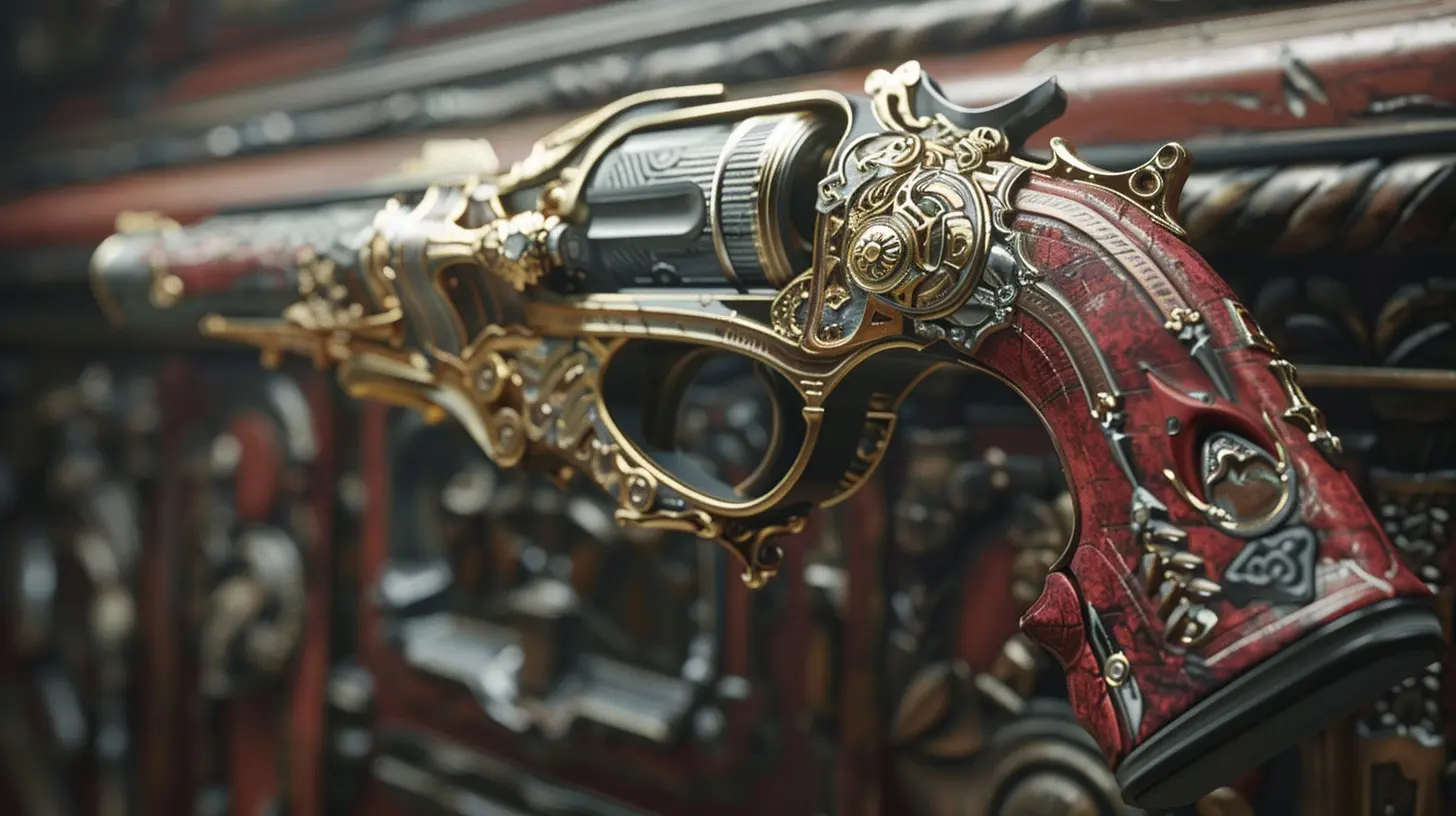
Weapon Mods: A Double-Edged Sword
Weapon mods can be both a blessing and a curse, depending on how they’re implemented. For players, they can add depth, customization, and excitement to their gear. But for developers, they’re a Pandora’s Box of potential pitfalls.The Good Stuff
- Personalized Gameplay: Mods let players tailor their weapons to match their style. Are you a sniper? Throw on a long-range scope. Prefer to spray and pray? Go for the extended mag.- Replay Value: Mods encourage experimentation. Trying out new combinations can lead to fresh gameplay experiences.
- Sense of Accomplishment: Let’s be honest—grinding for a rare mod can feel amazing when you finally snag it.
The Not-So-Good Stuff
- Power Creep: Mods that are constantly being updated can lead to power inflation. What’s strong today might become irrelevant tomorrow.- Barrier to Entry: For new players, the mod system can feel overwhelming or inaccessible if older players dominate with maxed-out kits.
- Pay-to-Win Concerns: As mentioned earlier, monetizing mods can create unfair advantages for those willing to shell out money.
Keeping Things Balanced: What Can Developers Do?
So, what’s the solution here? How can developers ensure weapon mods enhance the experience without breaking the game? A few ideas come to mind:1. Cap Mod Power: Mods should provide incremental improvements rather than game-breaking upgrades. Think quality of life rather than instant wins.
2. Balanced Rarity: Rare mods are fine, but when a few mods dominate the meta, it reduces variety. Developers should balance rarities so different mods have their moment to shine.
3. Limit Pay-to-Win: Cosmetic upgrades (like fancy skins) are fine, but gameplay-enhancing mods should be earnable in-game without spending real money.
4. Regular Adjustments: Developers should listen to community feedback and make tweaks to ensure balance. Dynamic games evolve, and so should weapon mod systems.
Final Thoughts
Weapon mods are more than just shiny upgrades; they hold real weight in shaping the in-game economy and balance. When done right, they add layers of depth and excitement. But when mishandled, they can easily become a source of frustration, division, and imbalance among players.At the end of the day, it’s all about perspective. For players, mods can be a fun way to flex their creativity. For developers, they’re a complex puzzle to piece together. It’s a balancing act, but when everyone plays their part, weapon mods can truly elevate a game to new heights.
all images in this post were generated using AI tools
Category:
Weapon CustomizationAuthor:

Luke Baker
Discussion
rate this article
2 comments
Zevan Lopez
Great insights! Understanding weapon mods truly enhances gameplay balance.
October 30, 2025 at 3:53 PM

Luke Baker
Thank you! I'm glad you found the insights valuable. Weapon mods indeed play a crucial role in shaping both gameplay and economic dynamics.
Storm Willis
Great insights! Understanding weapon mods' effects on economy and balance deepens our appreciation for game design.
July 21, 2025 at 3:31 AM

Luke Baker
Thank you! I'm glad you found the insights valuable. Understanding these dynamics truly enhances our appreciation for the complexities of game design.
